A Vision Splendid: The Discourses of David O. McKay
$22.95
by Anne-Marie Wright Lampropoulos
- “There had never been a Latter-day Saint church president in the mold of David O. McKay. Lampropoulos introduces us to his lofty, accessible, poetic vision that remains relevant, even vital, in a world he could never have imagined.” — Gregory A. Prince
- “A Vision Splendid is a splendid academic contribution, but more importantly it is a warm and majestic testimony to the power of language—scriptural, poetic, inspirational, personal—to shape the soul and lift a people to divinity.” — Neylan McBaine
- “Through a sampling of his speeches to audiences throughout the world we become better acquainted with this magnificent man of letters.. . . . An inspiring read.” — Whitney Johnson
- “Brings into focus evidence of President McKay’s facility as a both studious and extemporaneous speaker.” — Richard L. Saunders
- "A fascinating study of the sermons of this important prophet." — Andrew Hamilton



Available in ebook for Kindle, Apple, Google Play, and, Kobo.
Also available through Amazon.
Download a free sample preview.
Book Description:
During his forty-five years as a Latter-day Saint apostle and nineteen years as the prophet, David O. McKay gave thousands of speeches, including hundreds of temple and chapel dedications, civic addresses, funeral sermons, and General Conference and other Church-related talks. Many of these speeches contain some of the same prose and poetry, but no two speeches are the same. All of these discourses were written by McKay himself, and virtually all of them were typed, organized, and kept in large, legal-sized leather binders by Clare Middlemiss, his long-time personal secretary. His choice of prose reveals his favorite authors and literature, a glimpse into his personal library. It also conveys his ideals and his fervent belief in their truth.
Never before, and not since, has The Church of Jesus Christ of Latter-day Saints had a prophet so well versed in secular as well as scriptural prose. McKay’s intellectual and spiritual worlds meshed as he recited with ease the poetry of Edgar A. Guest, John Oxenham, and Joaquin Miller, as well as the patriotic pronouncements of George Washington, Patrick Henry, and Benjamin Franklin. In one speech he seemed to have studied Scottish lore, and in another he effortlessly extolled current US statistics on crime or divorce. He was at times romantic and wistful, and at other times firm and warning.
In A Vision Splendid: The Discourses of David O. McKay, Anne-Marie Wright Lampropoulos culls from the vast records of McKay's discourses that Middlemiss kept and groups certain categories of speeches together: dedications, civic addresses, Church discourses, and funeral sermons. Each chapter broadly analyzes a category and then includes samples of illustrative full speeches. This analysis and compilation illustrates how McKay looked to poignant prose for a sense of his own personal identity and inspiration, as well as the larger identity and inspiration of Church members.
Comprehensive Table of Contents:
.
Preface
Introduction
1. Dedications
Studio City Ward Meeting House, August 10, 1952
Ontario Ward Meeting House, January 11, 1953
Hyde Park Chapel, February 26, 1961
2. Civic Addresses
Branch Agricultural College Commencement, May 22, 1953
Scots Day at Ben Lomond High School, January 25, 1961
Ricks College, September 20, 1961
3. Church Discourses
To the Youth, October 2, 1960
North British Mission, March 1, 1961
California Mission Conference, January 5, 1953
Junior Sunday School, Studio City Ward, August 10, 1952
4. Funeral Sermons
Lydia Spencer Clawson, February 5, 1941
Edward Jeremy Ashton, September 16, 1941
Hilda Johnson Summerhays, February 28, 1945
Epilogue
Bibliography
Index
Q&A with the Author:
.
Q: The records your aunt, Clare Middlemiss, kept while working as secretary to President McKay are one of the great treasures of recent Mormon history. When did you decide to use them for a book and what directed you towards the topic of McKay's discourses?
A: I have been fascinated by my Aunt Clare’s work since childhood because of the way my family talked about her and her 35-year service with President McKay, and as the only woman to ever hold the position of private secretary to an LDS Church president. She gave my dad the vast collection of records she kept in her spare time, copious records consisting of thousands of pages of speeches, diaries, and scrapbooks. Her collection resided in a closet next to my bedroom after she passed away. My dad, Bob Wright, and his friend Greg Prince wrote an award-winning biography from Aunt Clare’s collection, David O. McKay and the Rise of Modern Mormonism. As comprehensive as their book was, there was still so much more inside these records. As I read through McKay’s speeches, I noticed how much he relied on beautiful literature and poetry to relay his messages. Gleaning from this treasure trove of material, I have tried to capture the essence of McKay’s inspiration and the remarkable vision he had for the world and the Church he led. Much has been written about McKay’s life and tenure as a Church leader and prophet, but little has been written about his love of literature and his abundant use of beautiful poetry and prose in every address he gave. Study of his speeches provides interesting insight into how he spent his precious free time, the books and journals he read, and the sources he sought for inspiration and understanding.
Q: How did you decide what categories of McKay's discourses should be covered in A Vision Splendid?
A: As I read through the massive collection of McKay’s speeches, I immediately recognized distinct categories. Some of the speeches were official Church discourses, some of which had been published in various Church publications or covered in the media. But there were so many more that had never been heard or covered except by the people who were in attendance. These speeches were given in various settings, including Rotary Clubs, commencement exercises, building dedications, and my favorite, funeral services. Each category contained universal themes, but each category also contained different tones and messages as well, depending on the setting and the audience. It seemed logical to divide McKay’s speeches into four categories: Church Discourses, Dedications, Civic Addresses, and Funeral Sermons. These categories helped to organize and analyze McKay’s vast discourses and messages to audiences worldwide.
Q: What criteria did you use to select the three or four representative addresses published in full for each type of discourse?
A: From the tens of thousands of pages of material, I tried to select representative addresses for each genre that would give readers a genuine sense of McKay’s style and tone as well as the characteristic poetry and prose he used. No two speeches were ever the same, or even close, which is surprising given the immense numbers of speeches he gave. The discourses I chose to highlight portray good examples of the messages McKay thought were important and the unique way in which he chose to impart them to Church audiences, communities surrounding new temples and church buildings, civic groups, and mourners. Selected speeches were addressed to believers and non-believers, rural folks and city dwellers, Americans and world citizens.
Q: How do McKay's discourses help us understand his place in LDS history? What about his addresses was different from previous church presidents?
A: During his tenure as president of the Church of Jesus Christ of Latter-day Saints, David O. McKay addressed hundreds of audiences as he presided over unprecedented growth of Church membership worldwide. McKay’s discourses were not typical for an LDS prophet. Many of the words McKay used were not his own – he gathered them from poets and authors, scientists and saints, patriots, and politicians whose words not only add interest and dimension to his discourses, but demonstrate his astoundingly broad interests, his keen intellect, and his desire and ability to glean wisdom from many sources. It is apparent that he read, studied, and memorized from a vast private library and then recited, shared, and extolled his treasures publicly. Pertinent literary passages helped him make sense of the world and helped his followers discover beauty and truth. McKay was much more likely to quote great literature than scripture in his addresses, which is in stark contrast to the speeches we hear from Church leaders today. His scriptural prowess was masterful, of course, but he seemed to favor the scholarly knowledge he gathered from poets, authors, orators, and statesmen when communicating from the pulpit. His messages are more spiritual than scriptural, more universal than Church-centric, making his appeal more broad and widespread. McKay’s sermons are more lofty and literary than both his predecessors and his successors, and it was his unique way of understanding and relating to people that formed the foundation from which he was able to build the burgeoning, worldwide church we have today.
Q: A Vision Splendid comes out almost exactly twenty years after your first book with Greg Kofford Books, A Bundle of Choices, which interviewed LDS women about how they balanced their options and priorities. Do you see any connections between your two books?
A: I believe women will always question or doubt their choices at times. With so many options available to them, the ability to choose is liberating, yet difficult. My two books are related in the sense that I see my Aunt Clare Middlemiss as a fascinating study of a strong, career-oriented woman who was a pioneer. As the only woman to ever hold the position of private secretary to an LDS Church president, I would have loved to interview her about the choices and sacrifices she made to be able to contribute to Church history like she did. I know she would have liked to marry and have children, but without her diligent record-keeping and dedication, we would not know nearly as much as we do about how President McKay made the decisions he did, what pressures he felt, and how the inner workings of the Church operated during a time of tremendous growth. These details and Middlemiss’s work reveal details that may be uncomfortable to some, but shed light on the reality of the time, documented and recorded for us to analyze and learn from. She dedicated her life to supporting President McKay and wanted the world to know of his ‘vision splendid’ for the world and the lasting legacy he made on the Church and the world.
Q: Do you have a favorite poem or quote that McKay's addresses introduced to you?
A: My favorite quote of McKay’s inspired the title of this book “A Vision Splendid.” In some of his discourses, McKay quoted a passage describing John Keats that could easily have been used to describe himself:
So long had his inner eye been fixed upon beauty; so long had he loved that ‘vision splendid,’ so long had he lived with it, that not only did his soul take on the loveliness of what he contemplated, but the very lines of the poet’s face were chiseled into beauty by those sculptors called ‘thoughts’ and ‘ideals.’
To me, this passage embodies McKay as a person, his sense of the world, his optimism for humanity, and his love of beauty and inspiring words and ideals. As he presided over tremendous growth of the Church, he imparted his love of loveliness everywhere he went to every audience he addressed. His vision splendid made a lasting impact on the Church and the world.
Praise for A Vision Splendid:
"This is a rich source of heretofore unpublished addresses by McKay. . . . I highly recommend Anne-Marie Wright Lampropoulos’s A Vision Splendid: The Discourses of David O. McKay. As you read McKay’s nonconference addresses, your appreciation for the depth and breadth of David O. McKay’s intellect and oratory will be significantly enhanced. A vision splendid, indeed!" — Richard N. Armstrong, Journal of Mormon History
"There had never been a Latter-day Saint church president in the mold of David O. McKay—and perhaps there will not be another. Clearly distinguished from his predecessors in being a clean-shaven, immaculately dressed monogamist, he created an image that still fits only himself. McKay looked upon the world’s greatest literature as scripture and quoted it at least as often as he did Mormonism’s canon. In the carefully selected and annotated sermons and speeches in this volume, Anne-Marie Wright Lampropoulos introduces us (or re-introduces those of us who still hold memories of President McKay more than a half-century after his death) to his lofty, accessible, poetic vision that remains relevant, even vital, in a world he could never have imagined." — Gregory A. Prince, author (with Wm. Robert Wright) of David O. McKay and the Rise of Modern Mormonism
"Half a century after David O. McKay's forty-five years of church service came to an end, his words continue to provide rich fodder for personal and scholarly exploration. No one is better suited to approach him from both angles than Lampropoulos, who has familial connections and personal experiences with the prophet as well as the journalistic training to do him justice. Through personal reflections, textual analysis, and careful curation of McKay's most representative and literarily lush addresses, Lampropoulos sheds new light on his inner workings. A Vision Splendid is a splendid academic contribution, but more importantly it is a warm and majestic testimony to the power of language—scriptural, poetic, inspirational, personal—to shape the soul and lift a people to divinity." — Neylan McBaine, author of Women at Church: Magnifying LDS Women’s Local Impact
"A Vision Splendid paints a picture of the seldom studied post-WWII period in the history of The Church of Jesus Christ of Latter-day Saints. Truly internationalizing the Church for the first time, President David O. McKay would travel more than all his predecessors combined, as an ambassador of Jesus Christ and a messenger of hope. Through a sampling of his speeches to audiences throughout the world, from a Junior Sunday school talk in Studio City, California to the Hyde Park Chapel dedication in London, we become better acquainted with this magnificent man of letters. A Vision Splendid is also a paean to President McKay’s devoted, longtime private secretary, Clare Middlemiss, whose detailed record- keeping of his ministry made this book possible. An inspiring read." — Whitney Johnson, author of Smart Growth: How to Grow Your People to Grow Your Company, and host of the Disrupt Yourself podcast
"As arguably the first “modern” prophet of the Restoration, David O. McKay’s influence as a public figure was immense. This sparkling little collection is the first to bring into focus evidence of President McKay’s facility as a both studious and extemporaneous speaker. It brings the reader within the McKay spell as heard by his audiences." — Richard L. Saunders, author of The 1920 Edition of the Book of Mormon: A Centennial Adventure in Latter-day Saint Book History
"A Vision Splendid is a wonderful contribution to LDS history and literature. I highly recommend this book, especially to those who love literature and the Gospel. It is a case study of one who truly embodied the scripture: "And as all have not faith, seek ye diligently and teach one another words of wisdom; yea seek ye out of the best books words of wisdom, seek learning even by study and also by faith" (D&C 109:7). It gives valuable insight into a person who truly sought to expand the tent of the church to include all people by using their own literary treasures to expound upon principles of the Gospel." — Richard Ji, Association for Mormon Letters
"In this engaging book Anne-Marie Wright Lampropoulos 'brings to life the nature and style with which David O. McKay taught.' It is a fascinating study of the sermons of this important prophet." — Andrew Hamilton, Association for Mormon Letters
About the Author:

Anne-Marie Wright Lampropoulos is the author of A Bundle of Choices: The Option Overload of LDS Women Today, and has written for several newspapers, magazines, and journals. She served as the Vice President of Corporate Communications at Merit Medical Systems Inc. for sixteen years and worked as Deputy Director of Communications for the New York City Council during Mayor Rudy Giuliani’s administration. Anne-Marie earned a bachelor’s degree from Columbia University and a master’s degree from the Columbia University School of Journalism. She has three children and lives in Salt Lake City.
More Information:
215 pages
ISBN: 978-1-58958-777-9 (paperback)

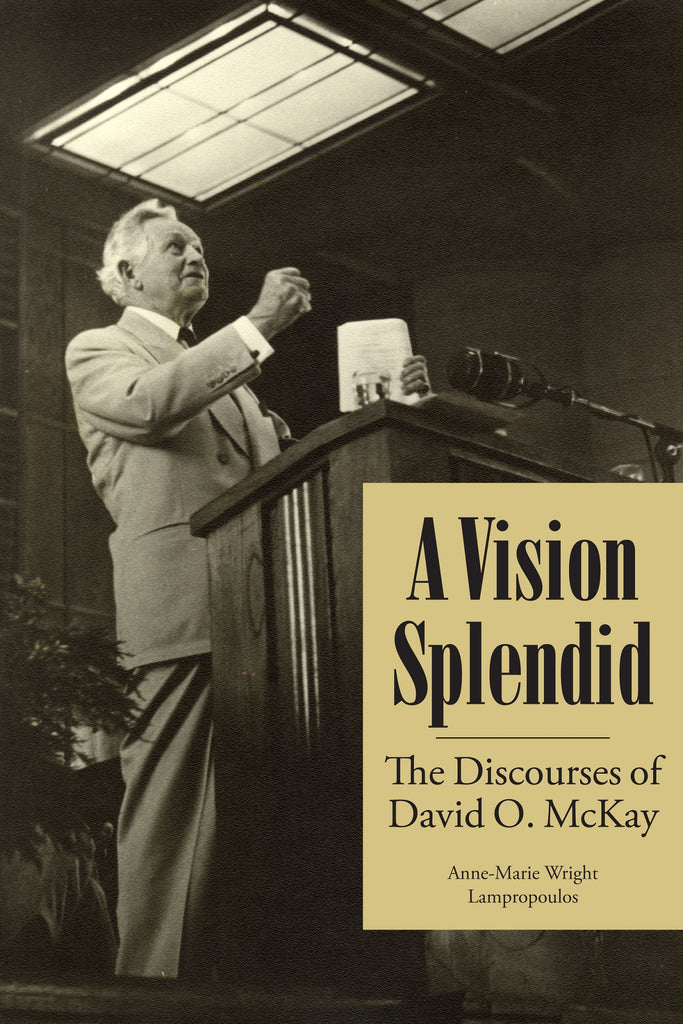



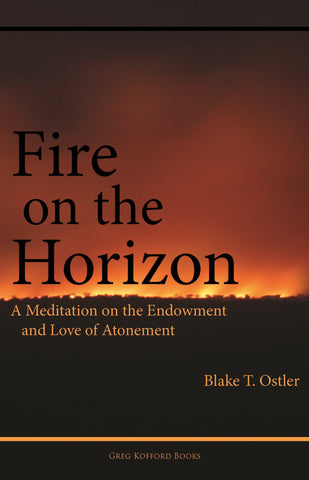
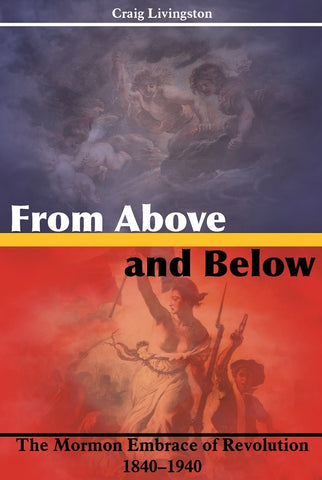
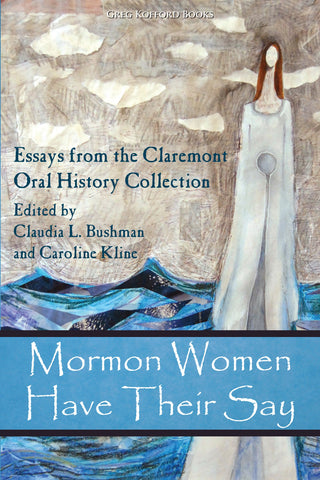
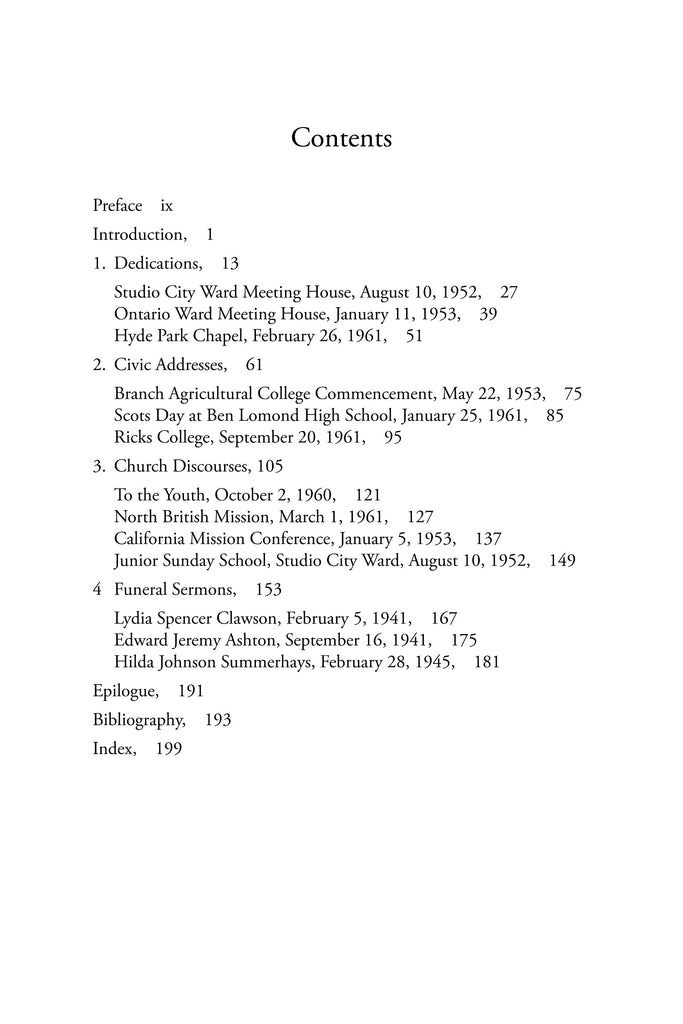
Share this item: